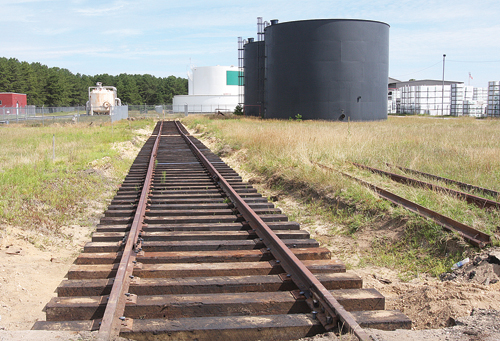Editorial: Riverhead Town may need federal help with the DEC

Riverhead Town is facing a day of reckoning when it comes to its finances. Budget reductions that save $40,000 here and $130,000 there aren’t going to cut it. And in the end, the federal government could end up having to get involved.
The problem can be traced to the debacle we all know as the landfill “reclamation” project that needed to be called off after going well over budget and costing the town some $40 million — with much of the landfill left intact.
It then cost the town another $10 million to cap the landfill, which is what should have been done in the first place.
Taxpayers are now left to pay between $3 million and $4 million in debt service annually between now and 2022 to pay off this unnecessary cost.
Add into the mix what Supervisor Sean Walter has described as a $2.6 million “structural” budget deficit and it’s clear we won’t be able to pay down this debt any sooner. And what happens when the town’s existing surpluses from selling land at Enterprise Park at Calverton (EPCAL) run dry?
The supervisor is proposing to use $2.97 million from those reserve funds to offset a tax increase for next year. Using this money would leave the town with just under $9 million in reserve funds, he says.
The town had used $2.6 million in reserve funds in each of the past two budgets to minimize tax increases.
As things are going, there are only 3 to 5 more years until the surpluses are totally depleted, and before every property owner in town faces a massive tax bill hike.
That, or the hike will be gradual, likely instituted in increments during non-election years.
High taxes drive down property values, and that’s the last problem we need in a town already struggling to rebuild a downtown business district while dealing with depleted land preservation funds and other issues.
Is there light at the end of the tunnel?
That depends on whether the town can sell enough land at EPCAL between now and 2022 to keep its head above water until this massive debt is cleared.
But things won’t be that easy at EPCAL.
There’s been a massive study, which includes planning, marketing and environmental components, that’s holding up any potential land sales as we await a subdivision map to be completed, which could happen within the year. But the price tag for building infrastructure, including necessary sewer treatment facilities, necessary to sell off the land is expected to reach some $44 million.
This is why Mr. Walter and the Town Board have been appealing to the state for financial help through grants and for the creation of a state commission to oversee and fast-track approvals for those looking to purchase and develop parcels at EPCAL.
But this all may never happen.
There’s been one major thorn in the town’s side when it comes to development at EPCAL, and that’s the state Department of Environmental Conservation. DEC officials seem to be at war with everything and anything proposed for undeveloped land at EPCAL.
It’s no secret environmentalists would like to see the whole thing remain a nature preserve, perhaps forgetting that when the federal government deeded the property to Riverhead Town in the mid-1990s, it was on the condition that the land be used for economic development to replace the jobs lost when Grumman left the scene.
If the DEC throws up roadblocks as the town and state economic development officials move forward in trying to develop EPCAL, it would be doing so in defiance of the federal government, and what the federal government had envisioned for the property.
At some point, the feds may have to get re-involved and exert some pressure on the DEC to fall into line.








